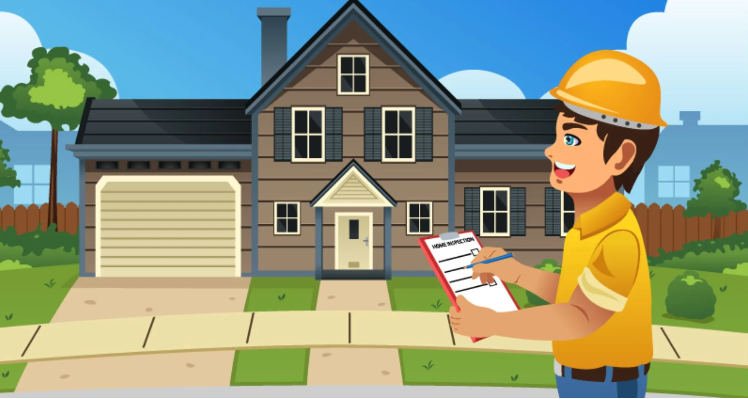Why It’s Essential to Have a Home Inspection Done During the Due Diligence Period When Buying a Home
As an experienced real estate agent who has guided countless clients through the home-buying process, I can tell you that one of the most critical steps is conducting a home inspection during the due diligence period. Whether you're buying your first home or your fifth, skipping this step is a gamble that can cost you both emotionally and financially. A home inspection offers an in-depth look at the property’s condition, uncovering issues that might not be visible during your initial walk-through.
In this post, I’ll explain why a home inspection is not just a recommendation—it's a necessity. We’ll look at how this crucial step protects your investment, empowers you during negotiations, and saves you from the pitfalls of buying a home with hidden problems.
The Importance of the Due Diligence Period
First, let’s break down what the due diligence period is and why it’s so important. In the simplest terms, it’s the window of time after you’ve gone under contract but before the sale is finalized. During this period, you, the buyer, have the right to fully investigate the property. This is the time to order a home inspection, review the seller’s disclosures, ensure your financing is in place, and negotiate any issues that arise.
Depending on the market and your contract, the due diligence period usually lasts 7 to 14 days, though this can vary. The primary purpose is to allow you to make sure the home is exactly what you think it is. If you discover any problems during this time, you can negotiate repairs, ask for concessions, or, in some cases, walk away from the deal without penalty.
As a seasoned real estate agent, I always advise my clients not to underestimate this phase. It’s your opportunity to take a deep dive into the condition of the property and protect your investment.
What Is a Home Inspection and What Does It Cover?
A home inspection is a comprehensive review of the property conducted by a certified inspector. The inspector examines the home’s major systems and components, identifying any defects, safety issues, or areas that may require repairs or further investigation. This is more than just a casual look at the property—inspectors have the expertise to detect hidden problems that could become expensive repairs later.
Here’s what an inspection typically covers:
- Structural Integrity: The foundation, walls, roof, attic, and ceilings are examined for any cracks, water damage, or other issues.
- Plumbing: The inspector checks for leaks, water pressure issues, or potential future problems with pipes and water heaters.
- Electrical Systems: The inspection will cover wiring, electrical panels, outlets, and light fixtures to ensure everything is up to code and safe.
- HVAC Systems: Your heating and cooling systems are evaluated to make sure they’re functioning properly and efficiently.
- Roof Condition: The roof will be inspected for missing shingles, leaks, or other signs of wear that might not be immediately visible.
In my experience, even homes that look picture-perfect can have hidden issues, and a thorough inspection ensures you’re not blindsided by costly surprises down the line.
Why a Home Inspection Is Crucial During Due Diligence
Now, let’s dive into the reasons why a home inspection is absolutely essential during the due diligence period:
1. Uncover Hidden Issues
One of the most important reasons to get a home inspection is to uncover any problems that aren’t obvious. As an agent, I’ve seen homes that look flawless, but once the inspection report comes in, we find issues that range from minor to catastrophic. This can include things like:
- Foundation cracks that threaten the structural integrity of the home.
- Leaky pipes that could lead to water damage or mold.
- Electrical hazards like outdated wiring that could pose a fire risk.
- Roof damage that might not be visible without a professional inspection.
These are the types of issues that most buyers—and even agents—can’t spot during a regular walk-through. Without an inspection, you could end up with significant and unexpected repair bills after closing.
2. Negotiation Power
Another major benefit of a home inspection is the negotiation leverage it gives you. If the inspector finds any problems, you can:
- Ask the seller to make repairs before closing.
- Negotiate a lower purchase price to account for the cost of fixing the issues yourself.
- Request a credit at closing to cover future repairs.
- Walk away if the problems are too severe or the seller isn’t willing to work with you.
Without the detailed information provided by an inspection, you would be going into the sale blind, and you would lose out on this crucial negotiation tool. In fact, I’ve had buyers who were able to renegotiate thousands of dollars off the sale price thanks to issues uncovered during the inspection.
3. Plan for Future Repairs
Even if the home inspection doesn’t reveal any deal-breaking problems, it will still give you valuable insight into the future maintenance of the property. For example, if the roof is nearing the end of its lifespan, or the water heater has only a few years left, you can plan and budget for those expenses.
Knowing the expected lifespan of major components allows you to anticipate future costs and gives you peace of mind. Instead of being blindsided by an unexpected repair, you can prepare for what’s ahead and avoid any unpleasant surprises.
4. Safety First
A home inspection is critical for identifying safety hazards that might not be immediately apparent. Electrical issues, mold, radon, and faulty gas lines are just a few examples of potential dangers that an inspector could uncover. Ensuring that the home is safe to live in should always be a top priority.
As a real estate agent, I always tell my clients that safety comes first. If the inspection reveals something like faulty wiring or a gas leak, we can address it before you move in. No home is worth risking your safety or the safety of your family.
5. Peace of Mind
The home-buying process can be stressful, especially when you’re making one of the biggest financial decisions of your life. A home inspection gives you the peace of mind that you’ve done your due diligence and are making an informed decision.
While no house is perfect, having a detailed inspection report allows you to go into the transaction with your eyes wide open. You’ll know exactly what you’re buying, what needs to be fixed, and what to expect in the future. That’s the kind of clarity that allows you to feel confident about your investment.
6. Avoid Buyer’s Remorse
There’s nothing worse than buyer’s remorse, especially when it comes to a home. Skipping the inspection might save you a few hundred dollars up front, but it could cost you thousands in repairs later on. I’ve had clients who, after reading the inspection report, decided to walk away from a deal—and later thanked me for saving them from a financial disaster.
The home inspection is your insurance policy against buyer’s remorse. It’s your chance to identify any potential issues and either negotiate or reconsider before it’s too late.
7. Satisfy Loan Requirements
In some cases, your lender may even require a home inspection before they’ll approve the loan. This is particularly true for FHA and VA loans, but even some conventional lenders require inspections for older properties or homes with known issues. By getting the inspection done during the due diligence period, you ensure that you meet all lender requirements and avoid delays in closing.
Common Misconceptions About Home Inspections
As a real estate agent, I’ve heard several misconceptions about home inspections that need to be debunked:
-
“The home looks great; I don’t need an inspection.”
Aesthetic appeal doesn’t always reflect the true condition of the home. Hidden issues like electrical or plumbing problems can still exist, even in a beautiful home.
-
“It’s a new home; there can’t be any issues.”
Even brand-new homes can have construction defects or problems that aren’t immediately visible. An inspection ensures that everything is up to standard before you move in.
-
“I trust the seller’s disclosures.”
While seller disclosures are important, they might not cover everything. Sellers may not even be aware of certain issues, which is why a professional inspection is vital.
Conclusion
In my years as a real estate agent, I’ve seen firsthand how critical a home inspection is during the due diligence period. It’s more than just a formality—it’s your opportunity to fully understand the condition of the home you’re about to invest in. Whether you’re uncovering hidden issues, negotiating repairs, or planning for future maintenance, a home inspection is an invaluable tool that protects both your finances and your peace of mind.
If you’re in the process of buying a home, make sure you don’t skip this step. Your future self—and your bank account—will thank you.












